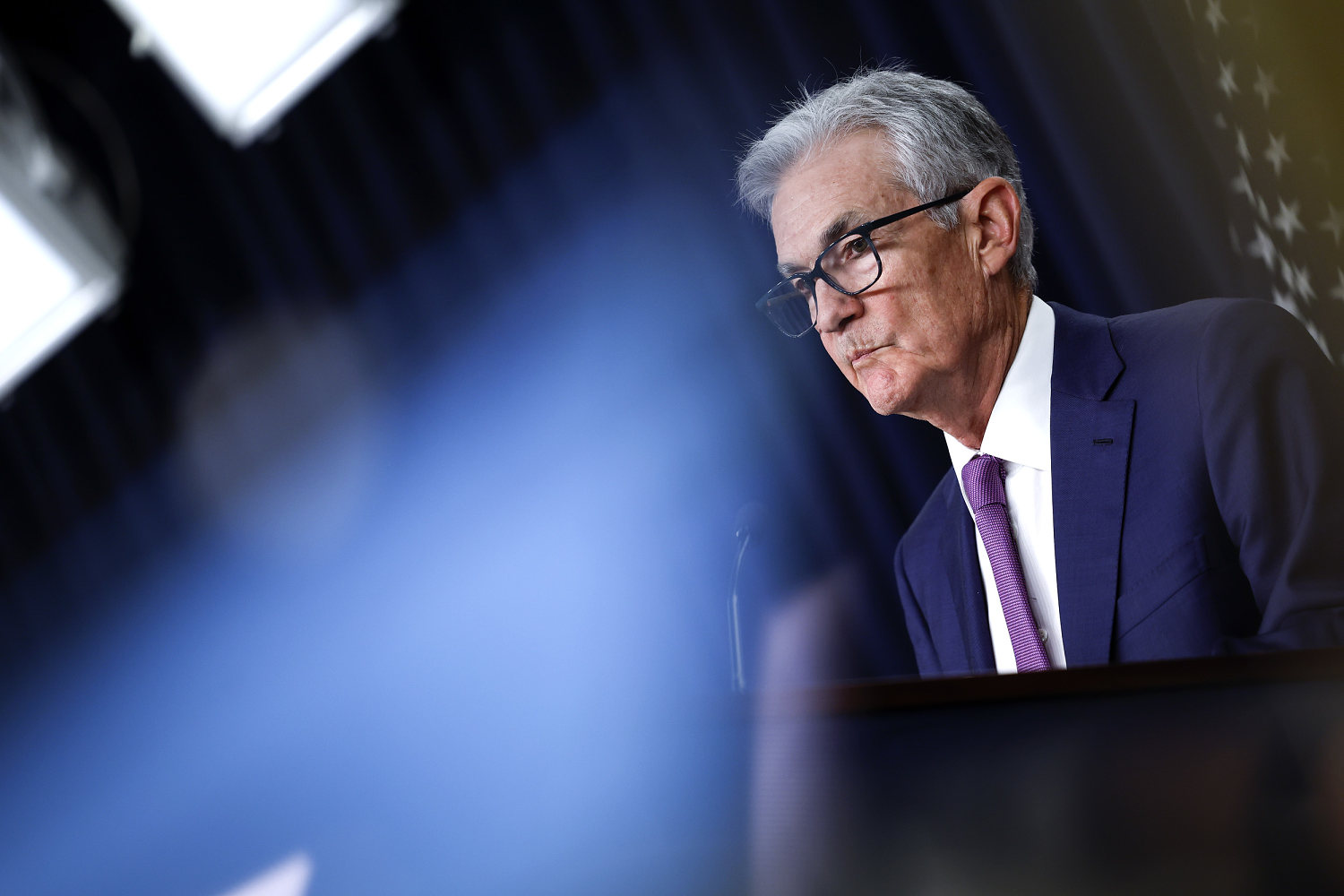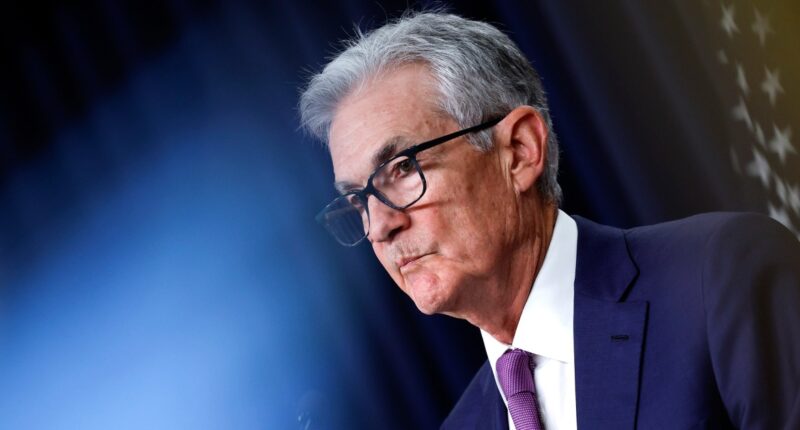Share this @internewscast.com

On Friday, Jerome Powell hinted at the possibility of the central bank reducing interest rates for the first time during President Donald Trump’s second term. The Federal Reserve chair noted that current monetary policies could be hindering economic growth.
Speaking at the Fed’s annual symposium in Jackson Hole, Wyoming, Powell highlighted the unusual balance in the labor market. This situation is due to reduced hiring rates and fewer workers available, influenced by Trump’s immigration policies and demographic shifts.
Generally, Powell pointed out that “the risks to employment are increasing.” He warned that if these risks come to fruition, there could be rapid increases in layoffs and unemployment rates.
Consequently, Powell suggested that adjusting the Fed’s current policy by cutting the benchmark interest rate might be necessary. This adjustment aims to make borrowing cheaper for consumers and businesses, thereby stimulating economic growth.
Stocks surged on the remarks as investors anticipated the Fed was now more likely to lower its key borrowing rate at its next meeting in September.
“Today’s speech couldn’t be clearer that Powell is ready to lower rates on September 17th, with the market fully anticipating this and another cut by the end of the year,” stated Peter Boockvar, an independent economist and market strategist, in a note following Powell’s remarks.
For several months, Trump has advocated for a rate reduction, claiming it hasn’t significantly triggered inflation. On Friday, Powell addressed this point, noting that the impact of tariffs on consumer prices “are now clearly observable” and predicted continued effects “in the coming months.” However, he acknowledged there remains “high uncertainty about timing and amounts.”
The speech comes as the central bank faces both internal divisions about the future direction of monetary policy while it responds to a shifting economic landscape and unprecedented outside pressure as key Fed officials face attacks from the Trump administration.
Some Fed members believe that any inflation caused by President Donald Trump’s tariffs will prove short-lived and that rates should be lowered to counteract signs of a deteriorating labor market, according to minutes from the most recent Fed meeting. Reducing the cost of borrowing for businesses and consumers tends to spur economic activity and thus hiring.
Other Fed members said that it was too soon to know how long the price increases from the tariffs will persist and that despite some signs of weakening, the jobs market is in no imminent danger. These officials would prefer to keep interest rates closer to current levels.
Economic analysts say conflicting economic data have set the stage for the differing views. While layoffs and the unemployment rate remain relatively low, hiring rates have also stalled. Meanwhile, recent inflation reports show mixed effects on prices for goods affected by tariffs — but that price growth for many consumer services remains elevated.
“Core inflation is still stubborn and the labor market, while showing some signs of cooling, isn’t screaming for emergency intervention,” Kevin Ford, strategist at Convera financial group, wrote in a note to clients. “This disconnect is what makes Powell’s speech a high-stakes event.”
Trump continues to hammer Powell on social media, calling on him to lower rates to boost the economy and, in particular, to boost home buying. But since the Fed’s benchmark interest rate does not affect mortgage rates, many experts believe the home market will continue to drift sideways no matter what the Fed does. It would likely take a significant economic downturn to materially lower the 30-year mortgage rate, experts say.
This week, Trump administration officials opened up a new front against Fed personnel, accusing Lisa Cook, who holds a governor position at the central bank, of committing mortgage fraud. The charge is being led by Bill Pulte, head of the Federal Housing Finance Agency, who posted images that suggested Cook claimed two different homes as her primary residence, but did not provide further evidence. Trump subsequently called on her to resign. Pulte continued his attack Friday, posting another image that he said suggested discrepancies in Cook’s mortgage documents, though these could not be verified. Trump subsequently posted again that Cook must resign or he would fire her.
Cook, who was nominated by President Joe Biden, said in a statement that she would take any questions about her financial history “seriously as a member of the Federal Reserve” and was “gathering the accurate information to answer any legitimate questions and provide the facts.”
Trump is already set to increase his influence on the Fed directly after he nominated his economic adviser, Stephen Miran, to replace Fed governor riana Kugler, who recently announced her resignation.











